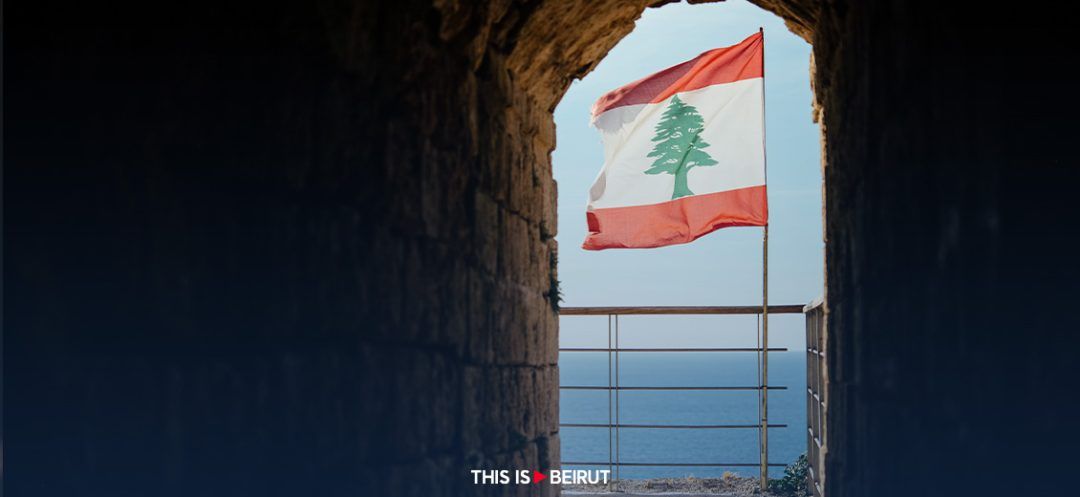
No people in the world believe in conspiracy theories like the Lebanese do. In Lebanon, there is an absolute passion for analyzing and painting scenarios, no matter how farfetched or utterly unrealistic they might be.
Adherence to conspiracy theories is nothing new for the Lebanese people, who believe that all that occurs is the result of a permanent conspiracy: the war was a conspiracy, the Beirut port explosion was a conspiracy, and the siege in the South was one too. Hiring a civil servant against the will of some party is a conspiracy, and dealing with vital issues such as homosexuality is also a conspiracy. School books are a conspiracy, much like Western movies.
The “conspiracy tank” is so bottomless that a new conspiracy seems to be imposed every day. In the previous hours, three conspiracy theories occupied the minds of people on social media, and they grew convinced that the entire world will stop at nothing to destroy the Lebanese society and its ideals, in the framework of a higher will to alter the current reality.
The first theory is the fruit of intelligence work, and it pertains to the arrest of activist Makram Rabah. A person with an opinion has now been perceived as a person who collaborates with the Israeli enemy, simply because they disagree with Hezbollah. And when the theory of “treason” doesn’t hold, another story is concocted, about Rabah being in an illicit relationship with another activist who tweets revolution-related content — the former is now accused of spreading the news as per his "lover’s" instructions. The case was closed for lack of substantial evidence, but conspiracy-fueled rumors are still free-flowing.
The second theory is linked to the Ramadan special series "Aa Amal," about women being abused by a patriarchal society that seeks to submit them and impose masculine values on them. According to some, the very act of writing such a series is an attack against ethics. These same people remain convinced that practicing violence against women and keeping them submitted is a necessity. Worse even, they have accused the series’ creators of tarnishing the reputation of veiled Muslim women, given that the writer is a Muslim woman, and that the producer is Muslim too. The theory is questionable, but unfortunately, many still defend it. The matter far exceeds the simple idea of aggressing women, a culture widespread in societies that hide behind customs and traditions to undermine basic human rights.
The third theory is about Miss World's first runner-up, Yasmina Zaytoun. According to the theory in question, an American lady paid a bribe and bought the title, to take revenge against a Lebanese media outlet — that supposedly did not want Zeytoun to win — by thwarting all efforts made towards giving credit to the other outlet that has exclusive broadcasting rights. However, the people behind the conspiracy chose to forget that the person concerned, Rima Fakih, is not on good terms with the Miss World beauty pageant, but is an active member of the Miss Universe foundation. Many believed the conspiracy to be true, especially since Lebanon ranked high in the competition, and had Zaytoun not gotten through, they would have claimed it was a Zionist plot to distance Lebanon from the world-renowned beauty pageant.
All the aforementioned theories are unfounded, for the simple reason that they give no room for doubt and paint an unrealistic picture of the events occurring. All in all, there is no conspiracy, neither against people with specific opinions, nor against societal values or Lebanon’s position worldwide. Theories are theories, and will never rise to the heights of undeniable truths. But sticking to conspiracy theories in our everyday lives is like admitting — falsely so — that everything in Lebanon is staged. Unfortunately, conspiracy theories have become excuses that frustrated Lebanese people, who don’t get what they want, tend to give. Desperation is the fuel of conspiracy.
Adherence to conspiracy theories is nothing new for the Lebanese people, who believe that all that occurs is the result of a permanent conspiracy: the war was a conspiracy, the Beirut port explosion was a conspiracy, and the siege in the South was one too. Hiring a civil servant against the will of some party is a conspiracy, and dealing with vital issues such as homosexuality is also a conspiracy. School books are a conspiracy, much like Western movies.
The “conspiracy tank” is so bottomless that a new conspiracy seems to be imposed every day. In the previous hours, three conspiracy theories occupied the minds of people on social media, and they grew convinced that the entire world will stop at nothing to destroy the Lebanese society and its ideals, in the framework of a higher will to alter the current reality.
The first theory is the fruit of intelligence work, and it pertains to the arrest of activist Makram Rabah. A person with an opinion has now been perceived as a person who collaborates with the Israeli enemy, simply because they disagree with Hezbollah. And when the theory of “treason” doesn’t hold, another story is concocted, about Rabah being in an illicit relationship with another activist who tweets revolution-related content — the former is now accused of spreading the news as per his "lover’s" instructions. The case was closed for lack of substantial evidence, but conspiracy-fueled rumors are still free-flowing.
The second theory is linked to the Ramadan special series "Aa Amal," about women being abused by a patriarchal society that seeks to submit them and impose masculine values on them. According to some, the very act of writing such a series is an attack against ethics. These same people remain convinced that practicing violence against women and keeping them submitted is a necessity. Worse even, they have accused the series’ creators of tarnishing the reputation of veiled Muslim women, given that the writer is a Muslim woman, and that the producer is Muslim too. The theory is questionable, but unfortunately, many still defend it. The matter far exceeds the simple idea of aggressing women, a culture widespread in societies that hide behind customs and traditions to undermine basic human rights.
The third theory is about Miss World's first runner-up, Yasmina Zaytoun. According to the theory in question, an American lady paid a bribe and bought the title, to take revenge against a Lebanese media outlet — that supposedly did not want Zeytoun to win — by thwarting all efforts made towards giving credit to the other outlet that has exclusive broadcasting rights. However, the people behind the conspiracy chose to forget that the person concerned, Rima Fakih, is not on good terms with the Miss World beauty pageant, but is an active member of the Miss Universe foundation. Many believed the conspiracy to be true, especially since Lebanon ranked high in the competition, and had Zaytoun not gotten through, they would have claimed it was a Zionist plot to distance Lebanon from the world-renowned beauty pageant.
All the aforementioned theories are unfounded, for the simple reason that they give no room for doubt and paint an unrealistic picture of the events occurring. All in all, there is no conspiracy, neither against people with specific opinions, nor against societal values or Lebanon’s position worldwide. Theories are theories, and will never rise to the heights of undeniable truths. But sticking to conspiracy theories in our everyday lives is like admitting — falsely so — that everything in Lebanon is staged. Unfortunately, conspiracy theories have become excuses that frustrated Lebanese people, who don’t get what they want, tend to give. Desperation is the fuel of conspiracy.
Read more



Comments